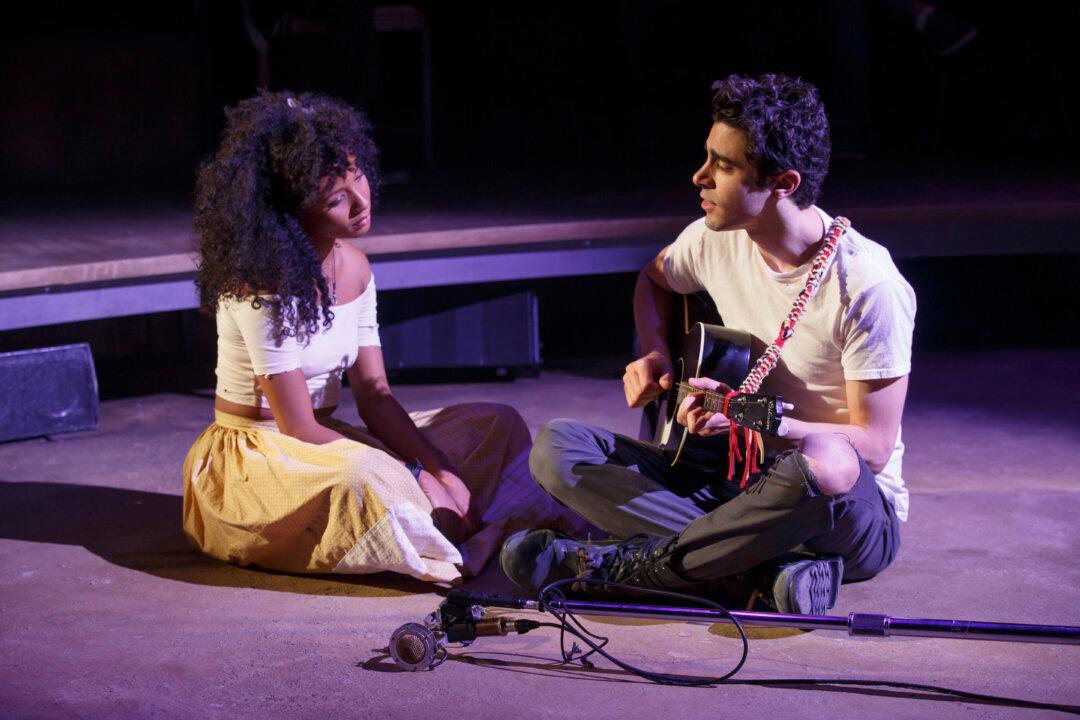NEW YORK—The New York Theatre Workshop has a winner with Anaïs Mitchell’s absolutely brilliant folk opera “Hadestown.” This immersive musical experience combines Greek mythology and elements of the 1927 film classic “Metropolis” to present a tale of star-crossed lovers forever bound by love and pain.
Orpheus (Damon Daunno) is a young man with a singing voice so angelic it can make clouds part and stones weep. Falling in love with Eurydice (Nabiyah Be), he soon charms this somewhat cynical woman who knows full well how cruel the world can be.
But as their summer courtship turns to winter, and with Orpheus seemingly more interested in his songs than his new wife, Eurydice finds herself falling under the spell of Hades (Patrick Page), ruler of the underworld. Having become too fearful of the harshness of the world, she instead chooses death, believing Hades will provide for her for eternity.






